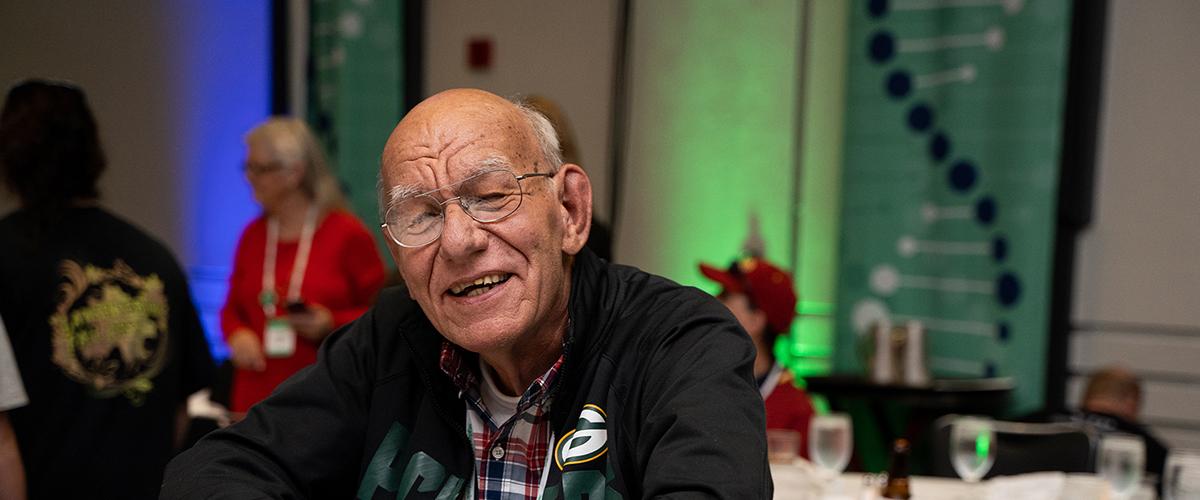Endpoint Award
Dr. Donovan Lott, of the University of Florida, has successfully competed for support of his project, “Development of Magnetic Resonance Imaging as an Endpoint in Myotonic Dystrophy Type 1.” The award is for one year, at $150,000.
Dr. Lott’s group has extensive experience in developing skeletal muscle MRI as an endpoint measure in neuromuscular disease, including their ongoing interactions with FDA to obtain biomarker qualification. There have been very few imaging studies of myotonic dystrophy skeletal muscle. Given the considerable potential of MRI, an assessment of the feasibility of the approach in DM is essential.
Drug development in myotonic dystrophy (DM) enjoys an important advantage—having the tools in hand to show that a drug candidate gains access to and modifies the primary cause of the disease. Since expanded repeats in DMPK (in DM1) and CNBP (DM2) sequester MBNL1 protein and cause easily assessable molecular (mis-splicing of a large set of genes) and physiological (myotonia) changes, we can get an early signal in Phase 1/2 trials that a candidate therapy engages and modulates a key drug discovery and development target.
The existence of clear endpoints for early stage clinical trials helps de-risk DM for investments by pharmaceutical and biotechnology companies. By contrast, the development of endpoint measures that either establish, or are surrogates for, a clinically meaningful benefit is a clear need for Phase 3 trials in DM, in order to gain regulatory approval for a drug or biologic.
With the objective of meeting this critical need, MDF issued a Request for Applications to identify and support a project with the objective of developing new, clinically meaningful endpoint measures or refining endpoint measures already in development. Dr. Donovan’s project received the highest rating from the MDF peer review panel and was selected for funding.
Dr. Donovan’s team will complete a project in 25 DM1 patients. In these studies, they will quantitatively assess upper and lower limb muscle status by MRI and relate findings to a battery of functional measures, thereby taking the first steps toward development and qualification of MRI as a sensitive and non-invasive biomarker for clinical trials in DM. A qualified endpoint measure, with established linkage to clinically meaningful outcomes for patients, will make each of our clinical trials considerably more efficient and informative.
UK Natural History Grant
Professor Hanns Lochmuller and Newcastle University are being awarded a $125,000 grant to extend a natural history study of 200-400 adult DM1 patients.
The Newcastle group is currently funded by the UK National Institute for Health Research to recruit and collect natural history data on the DM1 cohort for one year, through March 31, 2017. MDF funding will leverage this existing funding to allow Professor Lochmuller and colleagues to reach the upper end of their recruitment target and to extend the duration of data collection from this valuable cohort for an additional year. Data collection involves a wide variety of endpoints, with the aggregate data assisting in the planning, design, and recruitment of future clinical trials, as well as supporting identification of putative biomarkers of DM1.
Robust natural history studies are critical to the development of endpoint measures that reflect clinically meaningful benefit for use in registration trials. MDF and the Wyck Foundation are pleased to be able to leverage other grant funding to increase the value and impact of this study.
07/27/2016

